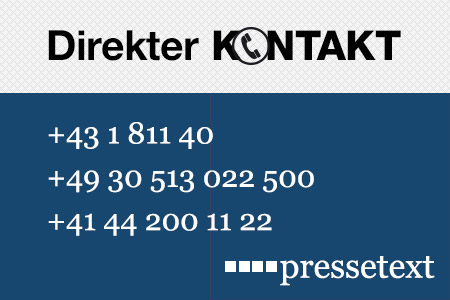10 questions about: mobile learning
Dr Volker Zimmermann, Board member at IMC, about mobile learning
 |
Dr Volker Zimmermann (Copyright: IMC AG) |
Saarbrücken (ptp015/16.11.2012/13:00) Dr Volker Zimmermann, Board member at IMC, talks about mobile learning in an interview with Tamara Hausmann, PR manager at IMC AG.
IMC: What impact are mobile technologies having on training?
The latest studies, such as the German trend monitor "Learning Delphi 2012" published by the MMB-Institute (http://www.mmb-institut.de/english/profile.html ), clearly show that mobile learning is going to be the sales topic of the future in the area of training and development technology. I would agree with that, too. It is a subject that is rapidly gathering pace.
IMC: Why is this development happening right now?
The use of tablet PCs is increasing at a tremendous rate. Only recently, the market researcher IDC revised its forecasts for tablet sales for the whole of 2012 to 117.1 million, based on a previous figure of 107.4 million (http://news.cnet.com/8301-1035_3-57515712-94/tablet-shipments-now-expected-to-hit-117-million-this-year/ ). The new Windows 8 tablet and the launch of the iPad mini will undoubtedly increase the number of mobile devices in circulation even more.
Also, simply the way that tablets are used makes them the ideal device for mobile learning - they are convenient and easy to use. As a result, organisations will also use tablet PCs to manage their training processes. This can be done using an organisation's own devices; but it can also be done using the user's own personal device - I'm thinking about Bring Your Own Device: Because members of staff bring their own tablets to work, they use the same device for reading both their business e-mails and their private e-mails. Exactly the same thing will happen with learning.
IMC: Does that mean that more training will be done via the PC in the future?
I assume that management processes will still be done on PCs. However, end users will increasingly move over to tablet PCs or at least to touch-screen PCs. The worlds of tablets and PCs will come together with Windows 8. However, people will also work in parallel with various devices. In the area of mobile learning, it would be quite conceivable for a user to use their own tablet PC from home or travelling to work to access their learning material via a learning management system and then to carry on working through it on their PC in the office. In this situation, the system needs to be able to recognise which device is currently being used, so that it can provide the content in the appropriate form.
IMC: Does this also work with a poor mobile data connection?
In these cases, learners on the move using a learning management system, such as our CLIX, have no problems accessing courses and tests that have already been downloaded; they can simply work on this material offline, the mobile application saves the latest edited version and synchronises the data with the system at the next available opportunity.
IMC: We often hear about companies having problems playing back multimedia training material on their tablets. Is there a solution for this?
In actual fact, the lack of compatibility between the various tablets is a big problem, as is the fact that many applications were originally developed for PCs. However, with HTML 5, it is now possible to make the entire content multimodal, such that it can then be accessed from a wide variety of terminal devices. It even overcomes the problem that not all mobile devices can play Flash.
IMC: Is there such a thing as the typical scenario for m-learning on-the-job?
No. There is a huge variety of formats that people can work with. Depending on the target group and the training material, an app may be the right choice in one particular situation, whereas in another situation, a mobile website or a browser game would be more appropriate. The method of distribution also plays a part here: does the content need to be distributed via a third-party supplier, such as the Apple app store, or does the data need to be placed on a company's in-house server? Also, the topic of social learning is often important. A suitable learning platform is needed for this. In this respect, it is important for us as suppliers to construct learning management systems that can support different scenarios.
IMC: What specific advantages and disadvantages do the various solutions have?
App development is ideal, for example, for games or products that are highly interactive. Touchscreen functionalities, such as swiping, shaking or tilting, and also hardware options, such as microphones, cameras, vibration functions or GPS sensors offer a lot of interesting operating functions. Also, you do not necessarily need to have a good data connection to be able to use an app. These benefits stand alongside the fact that apps only ever run on one system and need to be reprogrammed again and again if they have to be made available on several terminal devices. Also, an app can often occupy a lot of storage space on the device.
Mobile websites are one alternative. They reside on the network and are thus accessible for all systems. The latest technologies allow the size of the display to automatically adapt to all devices. The focus here is clearly on content. Mobile websites hardly make use of the individual hardware options on terminal devices. However, they provide a high degree of flexibility as content can easily be changed at any time. In this case, the content does not need to be activated by an app marketplace.
Interactive e-books are a kind of interim solution, since they reside on the terminal device as a dataset and offer a range of typical operating functionalities. However, unlike native apps, they can also be distributed via the company's website or e-mail. Interactive e-books have additional applications that enhance the classic e-book format, such as integrated videos, e-tests, web links, etc. This is a format of particular interest for corporate publishing. However, when it comes to digital school bags as well as training and development at work, I predict that m-learning using interactive e-books will be a key medium in future!
IMC: So will the digital school bag soon be a reality for everyone?
Mobile learning will definitely have a major impact on school teaching in the near future. When it comes to new technologies, young children and adolescents are often more up to speed with the latest innovations than many companies. In the digital classroom, books will be digital and multimedia exercises will be actively used. This will also bring high levels of motivation for pupils, as interactive e-books enable creative ways of teaching. Experts believe that prices of tablets will fall even further in future, such that one device may well be cheaper than an individual textbook!
IMC: IMC develops these formats as part of new media services. But can companies also develop their own content?
Certainly, we also provide suitable solutions for them to do so. Our POWERTRAINER and LECTURNITY authoring tools already enable users to create their own learning material for mobile devices. We shall soon also be releasing the new version of POWERTRAINER, which focuses precisely on this area. At that stage, not only will it be possible to develop mobile web-based training material with all the popular functionalities, such as videos, animations and tests, but companies will also be able to produce their own interactive e-books in ePub3 format, which can then be run on all platforms and devices!
IMC: What other developments in the mobile learning market can we expect to see in the future?
I think that the whole process of creation, distribution and implementation will be even better coordinated in the future and above all, even greater consideration will be given to the requirements of the mobile landscape. That means that all steps will be fully reproduced in the cloud. Authoring tools will operate in the cloud, regardless of a person's location, which will give the flexibility to enable several colleagues to make changes at any time. The produced content will then be entered directly onto a learning platform in the cloud, for example our Learning und Talent Management System CLIX, that runs as a SaaS version on Microsoft's Windows Azure cloud platform. End users then access the content via a mobile connection to this platform. This ensures that learning material can be made flexible and edited using various mobile and static devices.
(end)
| Aussender: | imc information multimedia communication AG |
| Ansprechpartner: | Mag. Tamara Hausmann |
| Tel.: | +49 681 9476 302 |
| E-Mail: | tamara.hausmann@im-c.de |
| Website: | www.im-c.de |


